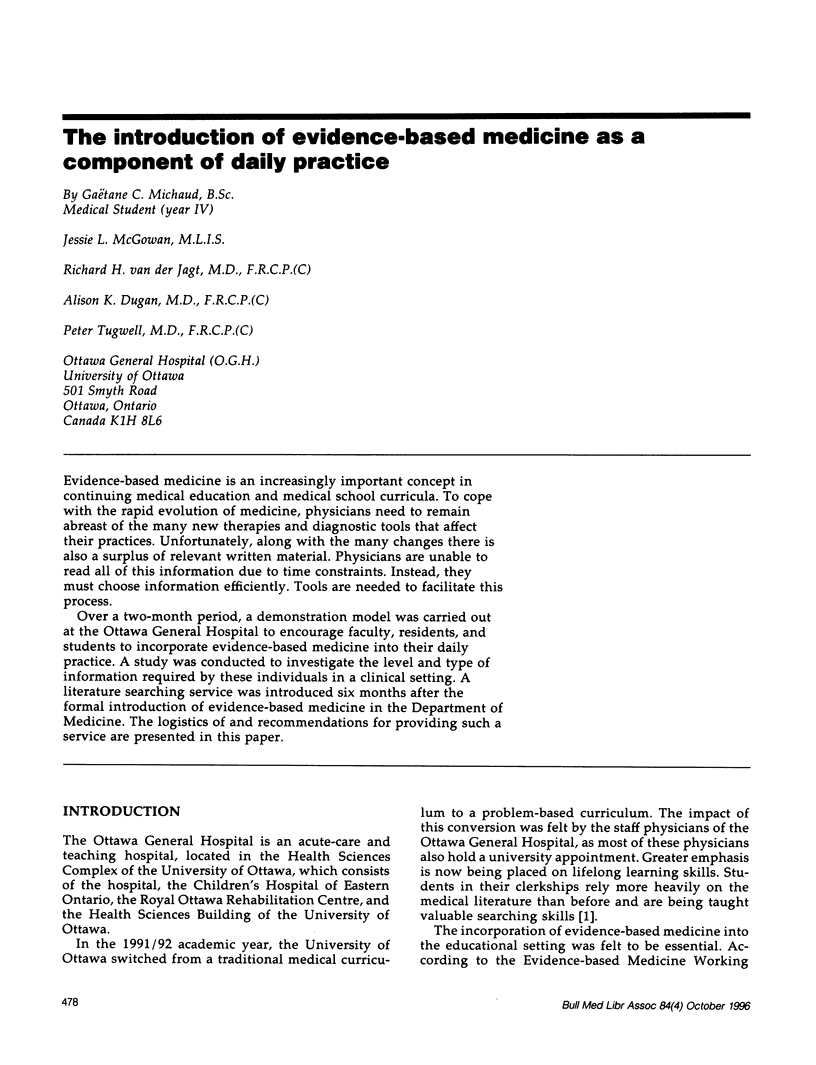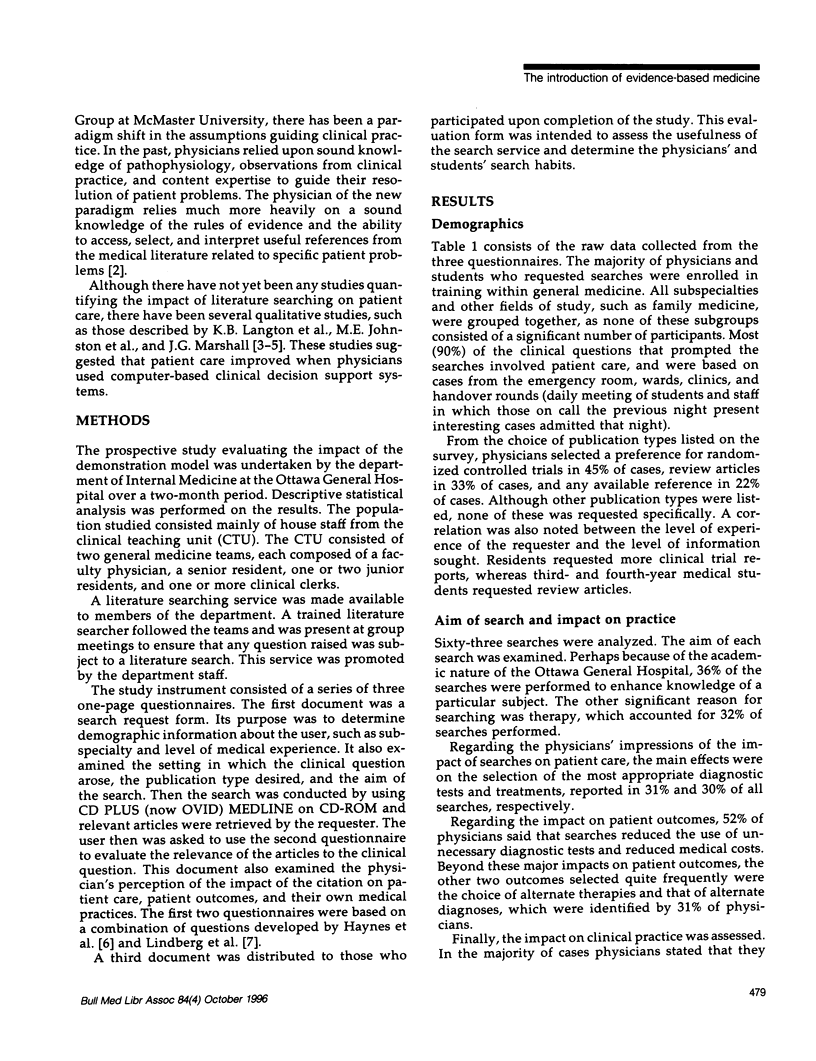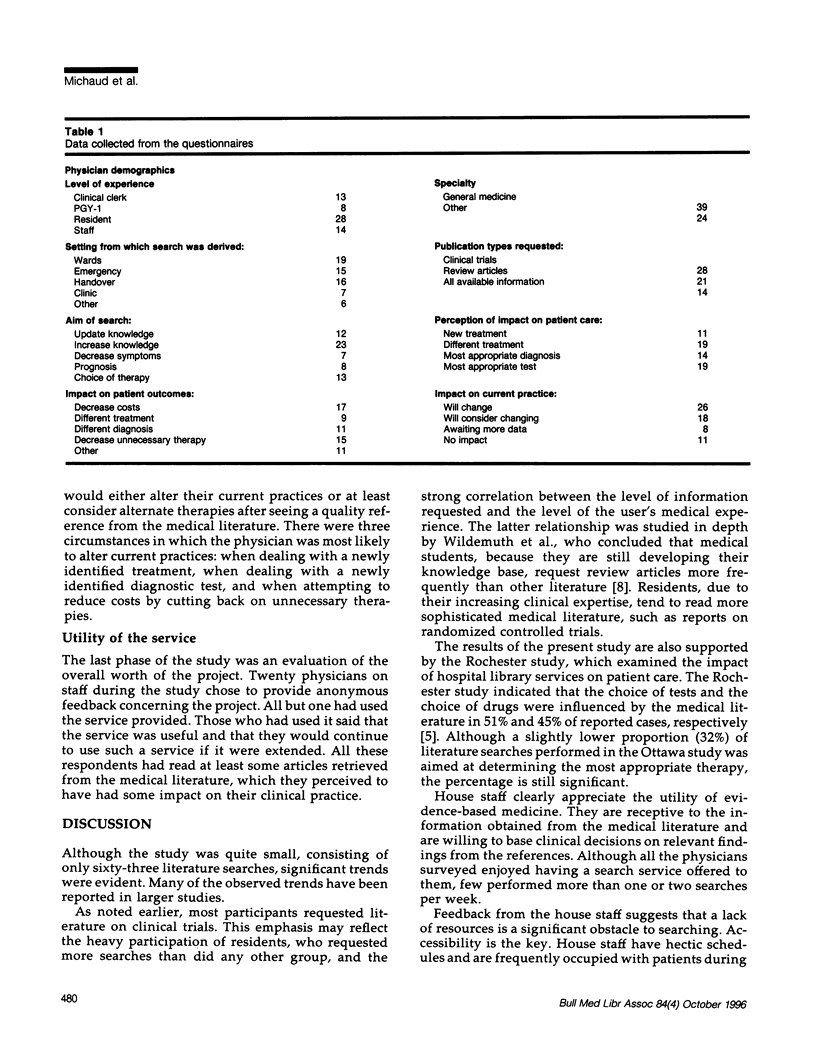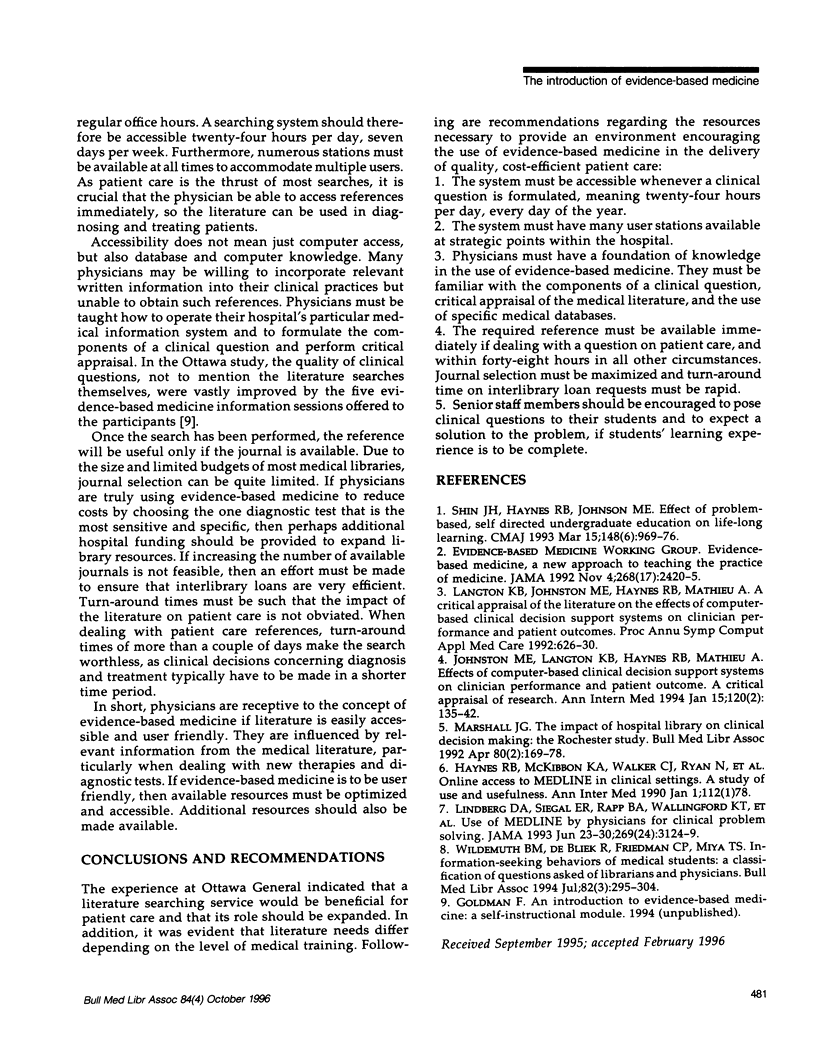Abstract
Evidence-based medicine is an increasingly important concept in continuing medical education and medical school curricula. To cope with the rapid evolution of medicine, physicians need to remain abreast of the many new therapies and diagnostic tools that affect their practices. Unfortunately, along with the many changes there is also a surplus of relevant written material. Physicians are unable to read all of this information due to time constraints. Instead, they must choose information efficiently. Tools are needed to facilitate this process. Over a two-month period, a demonstration model was carried out at the Ottawa General Hospital to encourage faculty, residents, and students to incorporate evidence-based medicine into their daily practice. A study was conducted to investigate the level and type of information required by these individuals in a clinical setting. A literature searching service was introduced six months after the formal introduction of evidence-based medicine in the Department of Medicine. The logistics of and recommendations for providing such a service are presented in this paper.
Full text
PDF



Selected References
These references are in PubMed. This may not be the complete list of references from this article.
- Evidence-Based Medicine Working Group Evidence-based medicine. A new approach to teaching the practice of medicine. JAMA. 1992 Nov 4;268(17):2420–2425. doi: 10.1001/jama.1992.03490170092032. [DOI] [PubMed] [Google Scholar]
- Johnston M. E., Langton K. B., Haynes R. B., Mathieu A. Effects of computer-based clinical decision support systems on clinician performance and patient outcome. A critical appraisal of research. Ann Intern Med. 1994 Jan 15;120(2):135–142. doi: 10.7326/0003-4819-120-2-199401150-00007. [DOI] [PubMed] [Google Scholar]
- Langton K. B., Johnston M. E., Haynes R. B., Mathieu A. A critical appraisal of the literature on the effects of computer-based clinical decision support systems on clinician performance and patient outcomes. Proc Annu Symp Comput Appl Med Care. 1992:626–630. [PMC free article] [PubMed] [Google Scholar]
- Lindberg D. A., Siegel E. R., Rapp B. A., Wallingford K. T., Wilson S. R. Use of MEDLINE by physicians for clinical problem solving. JAMA. 1993 Jun 23;269(24):3124–3129. [PubMed] [Google Scholar]
- Marshall J. G. The impact of the hospital library on clinical decision making: the Rochester study. Bull Med Libr Assoc. 1992 Apr;80(2):169–178. [PMC free article] [PubMed] [Google Scholar]
- Shin J. H., Haynes R. B., Johnston M. E. Effect of problem-based, self-directed undergraduate education on life-long learning. CMAJ. 1993 Mar 15;148(6):969–976. [PMC free article] [PubMed] [Google Scholar]
- Wildemuth B. M., de Bliek R., Friedman C. P., Miya T. S. Information-seeking behaviors of medical students: a classification of questions asked of librarians and physicians. Bull Med Libr Assoc. 1994 Jul;82(3):295–304. [PMC free article] [PubMed] [Google Scholar]



